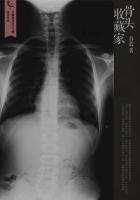Down in the basement of this palatial store was a little dressing room and lavatory for the floorwalkers, where they doffed their formal raiment and resumed street attire.His colleagues grumbled and hastened to depart, but Gissing made himself entirely comfortable.In his locker he kept a baby's bathtub, which he leisurely filled with hot water at one of the basins.Then he sat serenely and bathed his feet; although it was against the rules he often managed to smoke a pipe while doing so.Then he hung up his store clothes neatly, and went off refreshed into the summer evening.
A warm rosy light floods the city at that hour.At the foot of every crosstown street is a bonfire of sunset.What a mood of secret smiling beset him as he viewed the great territory of his enjoyment."The ******* of the city"--a phrase he had somewhere heard--echoed in his mind.The ******* of the city! A magnificent saying Electric signs, first burning wanly in the pink air, then brightened and grew strong."Not light, but rather darkness visible," in that magic hour that just holds the balance between paling day and the spendthrift jewellery of evening.Or, if it rained, to sit blithely on the roof of a bus, revelling in the gust and whipping of the shower.Why had no one told him of the glory of the city? She was pride, she was exultation, she was madness.She was what he had obscurely craved.In every line of her gallant profile he saw conquest, triumph, victory! Empty conquest, futile triumph, doomed victory--but that was the essence of the drama.In thunderclaps of dumb ecstasy he sawher whole gigantic fabric, leaning and clamouring upward with terrible yearning.Burnt with pitiless sunlight, drenched with purple explosions of summer storm, he saw her cleansed and pure.Where were her recreant poets that they had never made these things plain?
And then, after the senseless day, after its happy but meaningless triviality, the throng and mixed perfumery and silly courteous gestures, his blessed solitude! Oh solitude, that noble peace of the mind! He loved the throng and multitude of the day: he loved people: but sometimes he suspected that he loved them as God does--at a judicious distance.From his rather haphazard religious training, strange words came back to him."For God so loved the world..." So loved the world that--that what? That He sent someone else...Some day he must think this out.But you can't think things out.They think themselves, suddenly, amazingly.The city itself is God, he cried.Was not God's ultimate promise something about a city--The City of God? Well, but that was only symbolic language.The city--of course that was only a symbol for the race--for all his kind.The entire species, the whole aspiration and passion and struggle, that was God.
On the ferries, at night, after supper, was his favourite place for meditation.Some undeniable instinct drew him ever and again out of the deep and shut ravines of stone, to places where he could feed on distance.That is one of the subtleties of this straight and narrow city, that though her ways are cliffed in, they are a long thoroughfare for the eye: there is always a far perspective.But best of all to go down to her environing water, where spaces are wide: the openness that keeps her sound and free.Ships had words for him: they had crossed many horizons: fragments of that broken blue still shone on their cutting bows.Ferries, the most poetical things in the city, were nearly empty at night: he stood by the rail, saw the black outline of the town slide by, saw the lower sky gilded with her merriment, and was busy thinking.












